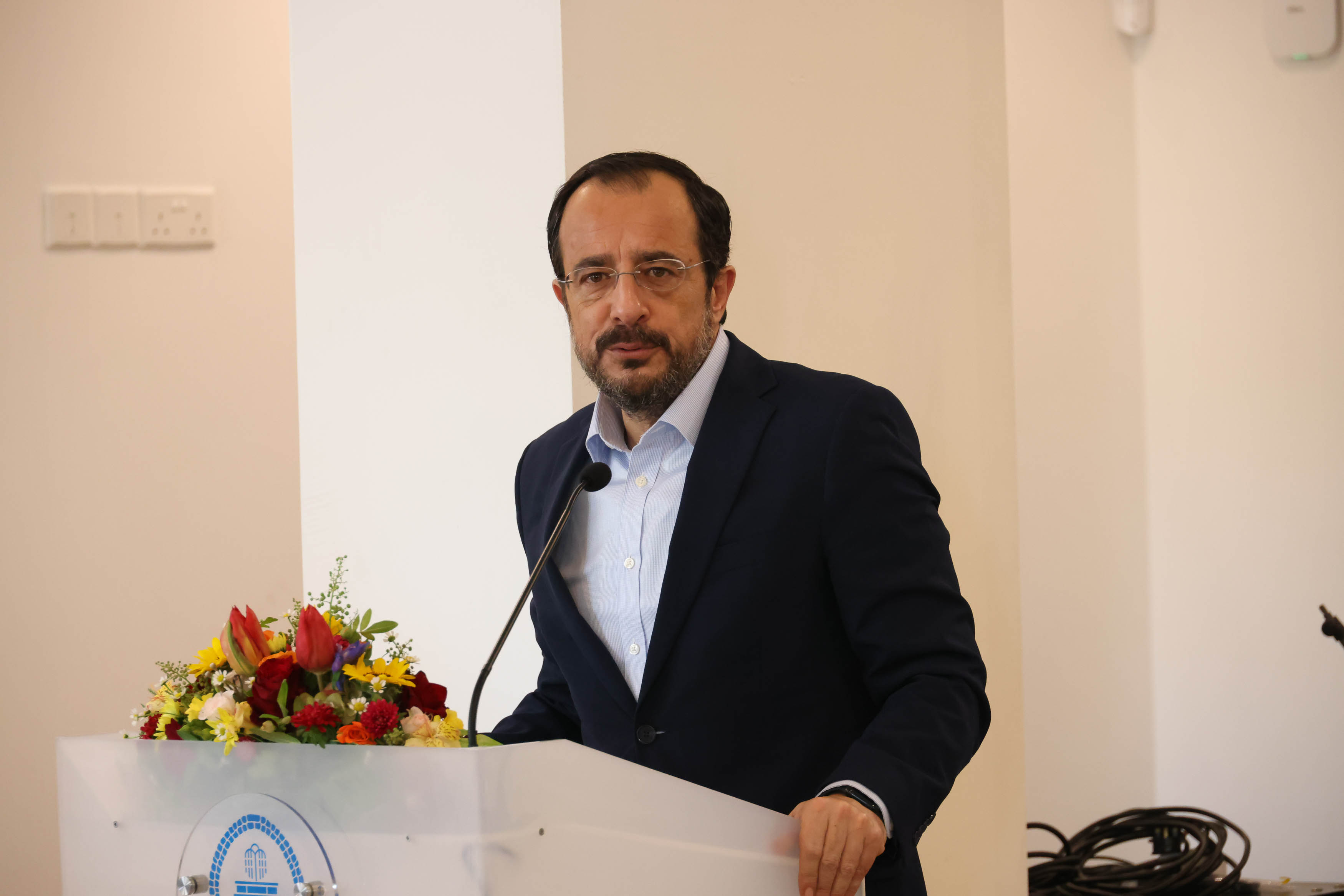The energy sector is a “key pillar” of Cyprus’ foreign policy, President Nikos Christodoulides said on Saturday.
He was speaking on the sidelines of a conference and made reference to the ‘3+1’ meeting of the energy ministers of Cyprus, Greece, Israel, and the United States which had taken place on Friday, saying that “one of our main goals is to align our interests no only with neighbouring states, but also with powerful actors in the international system”.
“The energy sector is one such sector in which we can cooperate closely. It is a sector which is also a key pillar of our foreign policy, and in this direction, in the coming weeks, we will have new developments to announce,” he said.
He added that the government’s goal is to “utilise the energy sector to address an internal challenge we have in relation to electricity”, and to also “utilise it as a factor which will bring the states of the region together”.
“Such a dimension is particularly important for the eastern Mediterranean to develop as an alternative energy corridor to Europe,” he said.
Friday’s meeting had seen Cypriot Energy Minister George Papanastasiou, and his counterparts Stavros Papastavrou of Greece, Eli Cohen of Israel, and Chris Wright of the US convene in Athens, with a joint statement declaring the four ministers’ support for “broader regional interconnectivity projects”.
Those projects, the statement said, include “those currently in progress and future ones”.
It added that the projects would be carried out “within the context of” he planned ‘India-Middle East-Europe Economic Corridor’ (Imec).
The ministers also committed to “use the 3+1 format to support the goal of diversifying the region’s energy supplies by reducing reliance on malign actors and improving connectivity between likeminded regional partners”, with the statement also declaring their aim to meet again in Washington DC between April and June next year.
The most prominent interconnection project at present is the Great Sea Interconnector – a planned undersea cable which will, if completed, link the energy grids of Cyprus, Greece, and Israel.
Papanastasiou had last month describe the project as a “priority” for the Cypriot government, saying that it will “definitively end our country’s energy isolation, enhancing the security of supply, competition between energy producers and providers, and creating opportunities for energy exports”.
However, its future remains somewhat unclear, with meetings ongoing between the governments of Cyprus and Greece with the aim of resolving key differences between them over the matter.
The rift between the two governments is sourced from the Cypriot government’s initial agreement to make five annual payments of €25 million to Greece’s independent transmission system operator Admie before the interconnector is operational, but which it has thus far withheld.
The payments would in effect help finance the project and ensure that Admie, its 51 per cent shareholder and implementing body, will have a stable income while investing in the project before it turns a profit, but the Cypriot government has cited a lack of tangible progress on the project and differences in opinion regarding how the money should be sourced as its reasons behind not paying the money.
To this end, Papanastasiou had said in September that Cyprus will pay the first €25m instalment when the project is being “implemented in its entirety”, and that the construction of cables alone is “not enough” to meet this criterion.
Differences between the two governments became further entrenched Cypriot Finance Minister Makis Keravnos accused Papastavrou of “fake news” over the matter, with Greek Foreign Minister Giorgos Gerapetritis calling for clarity regarding Cyprus’ position the following day.
Keravnos’ comments had come after Papastavrou had said that he “does not show” the studies which he claimed demonstrate the project is not sustainable.
In response, he said the studies had been commissioned by Papanastasiou, that they were “properly delivered” to the Greek energy ministry, and that they had even been sent to Papastavrou’s predecessor Theodoros Skylakakis.
Papastavrou had previously decried what he described as “constantly conflicting messages from the Cypriot side” over the matter.






Click here to change your cookie preferences